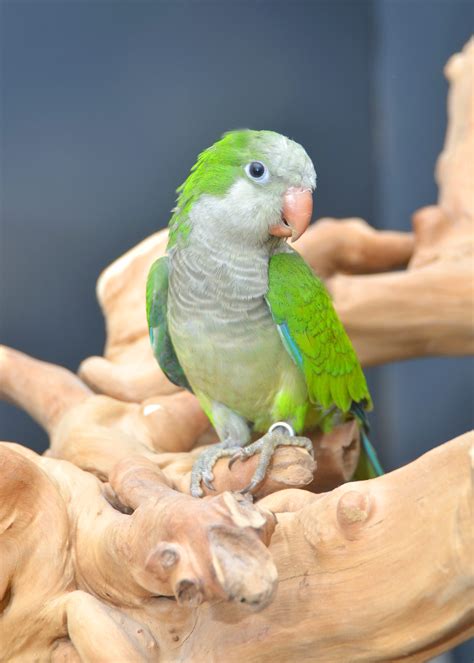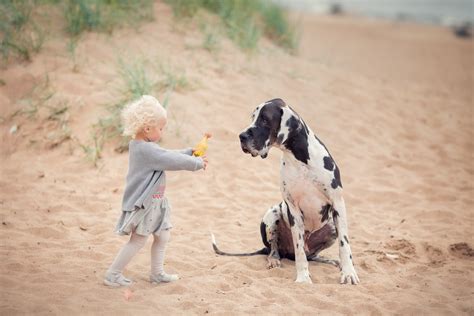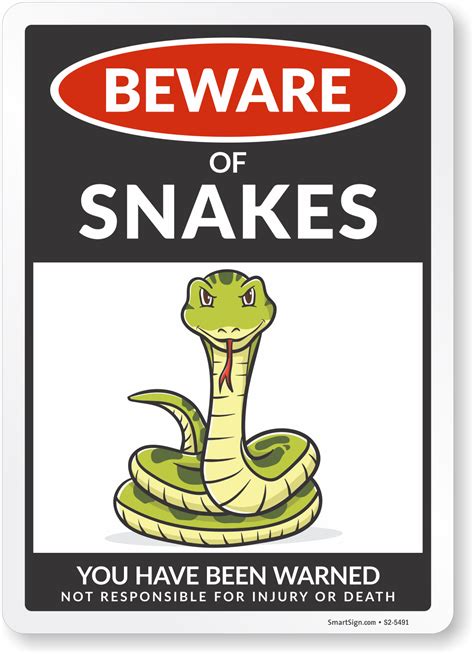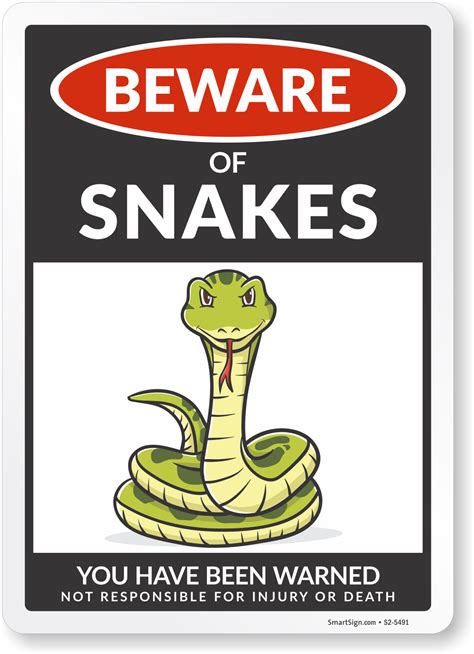
A Quaker parrot named Kiwi is charming the internet with a viral video showcasing its impressive “floofing” abilities, captivating audiences with its adorable transformation into a fluffy ball. The video, shared on Instagram by Kiwi’s owner, has garnered millions of views and illustrates the parrot’s natural behavior for thermoregulation and comfort.
Kiwi, a four-year-old Quaker parrot, has become an internet sensation after a video of it dramatically puffing up its feathers went viral. The video, posted on Kiwi’s dedicated Instagram account (@kiwi.the.quaker), shows the bird transforming from its usual sleek appearance into a ball of fluff, demonstrating a behavior known as “floofing.” The clip has been viewed millions of times, eliciting reactions of awe and amusement from viewers around the globe. The video’s caption reads: “Did you know that parrots can change their body size? It’s called “floofing” and it’s usually to regulate body temperature, or they are feeling cozy!”
“Floofing” is a natural behavior in birds, including parrots, where they fluff up their feathers to trap air and create insulation. This can help them stay warm in cold weather or cool down in hot weather. It can also be a sign of contentment and relaxation.
Kiwi’s owner, who prefers to remain anonymous, created the Instagram account to document the bird’s life and share its unique personality with the world. “I started the account because Kiwi is such a character,” they said. “He’s always doing something funny or interesting, and I wanted to share that with other people. I never expected the videos to go viral, but I’m so happy that Kiwi is bringing joy to so many people.” The owner further explained that Kiwi’s floofing is a common occurrence, especially when the bird is relaxing or feeling secure. “He usually does it when he’s preening or just sitting with us,” they added.
The popularity of Kiwi’s video highlights the internet’s fascination with animal behavior and the ability of pets to capture hearts worldwide. Social media platforms have become a breeding ground for viral animal videos, with users sharing clips of their pets engaging in amusing or heartwarming activities. These videos often provide a welcome distraction from the stresses of daily life and offer a sense of connection and shared experience.
Kiwi’s owner hopes that the video will not only entertain but also educate people about Quaker parrots and their unique characteristics. Quaker parrots, also known as Monk parakeets, are native to South America but have become popular pets around the world. They are known for their intelligence, sociability, and ability to mimic human speech.
The attention garnered by Kiwi’s “floof” debut has sparked interest in the specific needs and behaviors of Quaker parrots. Many viewers have expressed a desire to learn more about these birds and how to properly care for them.
The viral video has not only brought joy to millions but has also provided a platform for raising awareness about responsible pet ownership and the importance of understanding animal behavior. Kiwi’s owner plans to continue sharing videos and photos of the bird’s life, hoping to further educate and entertain its growing fanbase.
Quaker Parrots: More Than Just a Pretty Floof
While Kiwi’s “floofing” has captured the internet’s attention, it is important to understand the broader context of Quaker parrot ownership and care. These birds are intelligent, social, and long-lived, requiring a significant commitment from their owners. Potential owners should carefully consider whether they can provide the necessary environment, enrichment, and social interaction before bringing a Quaker parrot into their home.
Quaker parrots are known for their distinctive personalities. They are often described as being playful, curious, and affectionate. They can also be quite vocal, producing a variety of chirps, squawks, and whistles. They are also known for their ability to mimic human speech and other sounds, making them entertaining companions.
However, Quaker parrots also require a lot of attention and interaction. They are social birds and need to spend time with their owners on a daily basis. If left alone for long periods of time, they can become bored, lonely, and destructive. They also need a stimulating environment with plenty of toys and opportunities for exploration.
Quaker parrots are also relatively long-lived, with a lifespan of 20-30 years in captivity. This means that owning a Quaker parrot is a long-term commitment. Potential owners should be prepared to care for the bird for many years to come.
One of the most important aspects of Quaker parrot care is providing a healthy diet. Quaker parrots need a varied diet that includes pellets, fresh fruits, vegetables, and nuts. They should also have access to fresh water at all times.
Quaker parrots also need regular veterinary care. They should be taken to an avian veterinarian for annual checkups and vaccinations. They are also susceptible to a number of health problems, such as feather plucking, psittacosis, and beak and feather disease.
In some areas, owning a Quaker parrot may be restricted or prohibited due to concerns about their potential to become invasive species. Quaker parrots are native to South America, but they have been introduced to other parts of the world, including North America and Europe. In some areas, they have established feral populations that can compete with native species for resources.
Despite these challenges, Quaker parrots can make wonderful pets for the right owners. They are intelligent, social, and affectionate birds that can bring a lot of joy to their owners’ lives. However, it is important to understand the responsibilities that come with owning a Quaker parrot before bringing one into your home.
The Science Behind the Floof
The “floofing” behavior exhibited by Kiwi is not merely a cute quirk, but a complex physiological process that serves several important functions. Birds, including parrots, have evolved sophisticated mechanisms for regulating their body temperature and maintaining their overall health. Understanding the science behind floofing can provide valuable insights into the well-being of these fascinating creatures.
The primary function of floofing is thermoregulation. Birds fluff up their feathers to create a layer of insulation that traps air and reduces heat loss in cold weather. This layer of air acts as a barrier, preventing body heat from escaping into the surrounding environment. Conversely, in hot weather, birds can also use floofing to cool down. By fluffing up their feathers, they increase the surface area exposed to the air, allowing for more efficient heat dissipation.
The feathers themselves play a crucial role in this process. Bird feathers are composed of a complex network of barbs and barbules that interlock to create a smooth, aerodynamic surface. When a bird floofs its feathers, it disrupts this interlocking structure, creating air pockets within the plumage. These air pockets provide insulation and help regulate body temperature.
In addition to thermoregulation, floofing can also be a sign of comfort and relaxation. When a bird feels safe and secure, it may fluff up its feathers to indicate its contentment. This behavior is often accompanied by other signs of relaxation, such as preening and vocalizations.
Floofing can also be an indicator of a bird’s health. If a bird is sick or stressed, it may exhibit abnormal floofing behavior. For example, a bird that is constantly fluffed up may be trying to conserve heat due to illness. Conversely, a bird that is not able to fluff its feathers properly may have a feather problem or a underlying health condition.
Veterinarians and avian experts often use floofing as one of the indicators when assessing a bird’s health and well-being. Changes in floofing habits, coupled with other symptoms, can provide valuable clues about a bird’s overall condition.
The Impact of Social Media on Animal Awareness
Kiwi’s viral video is a testament to the power of social media in raising awareness about animals and their unique behaviors. Social media platforms have become a powerful tool for connecting people with animals and promoting responsible pet ownership.
The internet has provided a platform for animal lovers to share their experiences, knowledge, and passion for animals. Social media platforms like Instagram, Facebook, and TikTok have become hubs for animal-related content, with users sharing photos, videos, and stories about their pets and other animals.
These platforms have also helped to raise awareness about animal welfare issues, such as animal cruelty, neglect, and habitat loss. Animal rescue organizations and advocacy groups use social media to promote their work, educate the public, and raise funds.
The viral nature of social media can amplify the reach of animal-related content, allowing it to reach a wider audience. This can lead to increased awareness, understanding, and empathy for animals.
However, it is also important to be aware of the potential downsides of social media. Misinformation and misleading content can spread quickly online, and it is important to be critical of the information that you encounter. It is also important to be respectful of animals and their habitats when sharing content online.
Despite these challenges, social media has the potential to be a powerful force for good in the animal world. By connecting people with animals and promoting responsible pet ownership, social media can help to create a more compassionate and sustainable world for all living creatures.
Responsible Pet Ownership: Beyond the Viral Moment
The popularity of Kiwi’s video serves as a reminder of the importance of responsible pet ownership. While it is heartwarming to see animals bringing joy to people’s lives, it is crucial to remember that owning a pet is a significant responsibility.
Before bringing a pet into your home, it is important to carefully consider whether you can provide the necessary care, attention, and resources. This includes providing a healthy diet, a safe and stimulating environment, and regular veterinary care.
It is also important to understand the specific needs and behaviors of the animal that you are considering adopting. Different animals have different needs, and it is important to be prepared to meet those needs.
For example, Quaker parrots are intelligent and social birds that require a lot of attention and interaction. They need to spend time with their owners on a daily basis and need a stimulating environment with plenty of toys and opportunities for exploration.
It is also important to be aware of the legal and ethical considerations of pet ownership. In some areas, owning certain types of animals may be restricted or prohibited. It is also important to treat animals with respect and compassion and to avoid any behavior that could cause them harm.
Responsible pet ownership is not just about providing basic care; it is also about providing a loving and enriching environment for your pet. This includes spending time with your pet, playing with them, and providing them with opportunities to socialize with other animals and people.
By being a responsible pet owner, you can help to ensure that your pet lives a happy and healthy life. You can also contribute to a more compassionate and sustainable world for all animals.
Quaker Parrots and Conservation
While Quaker parrots are popular pets, it’s also vital to recognize their place in the wild and the importance of conservation efforts. Though not currently listed as globally threatened, understanding their natural habitat and potential threats is essential for responsible ownership and supporting broader conservation initiatives.
Quaker parrots are native to South America, primarily Argentina, Bolivia, Brazil, Paraguay, and Uruguay. They thrive in subtropical and temperate environments, often inhabiting open woodlands, agricultural areas, and even urban settings. Their adaptability has allowed them to establish feral populations in various parts of the world.
However, habitat loss and fragmentation due to agriculture, urbanization, and deforestation pose significant threats to wild Quaker parrot populations. These activities reduce the availability of nesting sites, foraging areas, and overall suitable habitat. Illegal trapping for the pet trade also poses a threat in some regions.
Supporting conservation efforts is crucial to ensuring the long-term survival of Quaker parrots in the wild. This can involve supporting organizations that work to protect their natural habitats, promote sustainable land use practices, and combat illegal wildlife trade.
As responsible pet owners, it’s also important to make informed choices about where you acquire your Quaker parrot. Supporting ethical breeders who prioritize the health and welfare of their birds and avoid contributing to the illegal wildlife trade is crucial.
By understanding the conservation challenges faced by Quaker parrots and supporting efforts to protect them, we can contribute to a future where these intelligent and fascinating birds continue to thrive in both the wild and as cherished companions.
The Future of Viral Animal Content
Kiwi’s story is a microcosm of a broader trend: the increasing prevalence and impact of viral animal content. As social media continues to evolve, so too will the ways in which we interact with and learn about animals online. Understanding these trends can help us navigate the digital landscape responsibly and harness the power of viral content for positive change.
One key trend is the growing sophistication of animal-related content. High-quality videos, captivating storytelling, and informative posts are becoming increasingly common, attracting larger audiences and fostering deeper engagement.
Another trend is the rise of animal influencers. Pets with large social media followings are becoming increasingly popular, using their platforms to promote brands, raise awareness about animal welfare issues, and entertain their fans.
However, it’s also important to be mindful of the potential pitfalls of viral animal content. Sensationalism, exploitation, and the spread of misinformation can all have negative consequences for animals.
The future of viral animal content will likely be shaped by a combination of technological advancements, evolving social norms, and a growing awareness of animal welfare issues. By promoting responsible content creation, supporting ethical influencers, and remaining critical of the information we consume, we can help to ensure that viral animal content continues to be a force for good in the world.
Ultimately, Kiwi’s viral fame is a reminder of the profound connection that humans share with animals. By celebrating their unique qualities, respecting their needs, and promoting their well-being, we can create a more compassionate and sustainable world for all living creatures.
Expanding on Kiwi’s Personality:
Kiwi’s owner frequently describes the parrot as a character, highlighting several personality traits that contribute to Kiwi’s appeal. These include a playful nature, a curious disposition, and a strong bond with its human companions. Kiwi often engages in antics such as playing with toys, exploring its environment, and interacting with its owners through vocalizations and physical gestures.
Kiwi’s vocalizations are diverse, ranging from typical parrot sounds to mimicked human speech. Its ability to learn and repeat words and phrases adds to its charm. The owner often shares snippets of Kiwi’s conversations on social media, demonstrating the parrot’s impressive cognitive abilities.
Another aspect of Kiwi’s personality is its affectionate nature. The parrot enjoys cuddling and interacting with its owners, often seeking physical contact and attention. This affectionate behavior reinforces the bond between Kiwi and its human companions.
The Role of Enrichment in Quaker Parrot Care
Enrichment is a crucial aspect of Quaker parrot care, designed to stimulate their minds and bodies and prevent boredom. A well-enriched environment can significantly enhance a Quaker parrot’s quality of life.
Enrichment activities for Quaker parrots can include:
- Toys: A variety of toys, such as chew toys, foraging toys, and puzzle toys, can keep Quaker parrots entertained and engaged. Rotate the toys regularly to prevent boredom.
- Foraging Opportunities: Hiding food in different locations or using foraging toys can encourage Quaker parrots to use their natural foraging instincts.
- Social Interaction: Quaker parrots are social animals and need regular interaction with their owners or other birds. Spend time talking to your parrot, playing with it, and providing it with opportunities to socialize.
- Environmental Enrichment: Providing a stimulating environment with different perches, climbing structures, and safe plants can encourage Quaker parrots to explore and exercise.
- Training: Training your Quaker parrot can be a fun and rewarding way to bond with your bird and provide it with mental stimulation.
Nutritional Needs of Quaker Parrots
A balanced and nutritious diet is essential for maintaining the health and well-being of Quaker parrots.
A Quaker parrot’s diet should consist of:
- Pellets: High-quality parrot pellets should make up the majority of a Quaker parrot’s diet. Pellets provide a balanced source of nutrients.
- Fresh Fruits and Vegetables: Offer a variety of fresh fruits and vegetables daily. Good choices include leafy greens, carrots, broccoli, apples, and berries.
- Nuts and Seeds: Offer nuts and seeds in moderation, as they are high in fat.
- Fresh Water: Always provide fresh, clean water.
Avoid feeding Quaker parrots avocado, chocolate, caffeine, and alcohol, as these substances are toxic to birds.
Common Health Issues in Quaker Parrots
While generally robust, Quaker parrots are susceptible to certain health issues that owners should be aware of.
- Feather Plucking: This behavioral issue can stem from stress, boredom, or underlying medical conditions.
- Psittacosis (Chlamydiosis): A bacterial infection that can cause respiratory and digestive issues.
- Proventricular Dilatation Disease (PDD): A viral disease affecting the digestive system.
- Aspergillosis: A fungal infection that can affect the respiratory system.
- Obesity: Due to their sedentary nature and fondness for high-fat foods, Quaker parrots are prone to obesity.
Regular veterinary checkups are crucial for detecting and addressing health problems early.
The Legality of Owning Quaker Parrots
The legality of owning Quaker parrots varies depending on the location. Some states and municipalities have restrictions or outright bans on Quaker parrot ownership due to concerns about their potential to become invasive species.
Before acquiring a Quaker parrot, it is essential to research and comply with all local regulations.
Ethical Considerations of Parrot Ownership
Parrots are intelligent and complex creatures with specific needs. Ethical parrot ownership involves providing a suitable environment, enrichment, and care that meets these needs.
Avoid impulse purchases and thoroughly research the responsibilities of parrot ownership before bringing a parrot into your home.
Consider adopting a parrot from a rescue organization instead of purchasing one from a breeder or pet store.
The Impact of Captivity on Parrots
Captivity can have both positive and negative impacts on parrots. While captivity can provide protection from predators and access to regular food and veterinary care, it can also limit a parrot’s natural behaviors and social interactions.
Providing a stimulating and enriching environment can help to mitigate the negative impacts of captivity.
Communicating with Your Quaker Parrot
Quaker parrots are intelligent and communicative birds. Learning to understand their vocalizations and body language can strengthen the bond between you and your bird.
Quaker parrots use a variety of vocalizations to communicate, including chirps, squawks, and whistles. They also use body language, such as feather position and posture, to convey their emotions.
The Importance of Socialization for Quaker Parrots
Socialization is essential for the well-being of Quaker parrots. They are social animals that need regular interaction with their owners or other birds.
Providing opportunities for socialization can help to prevent boredom, reduce stress, and promote healthy behaviors.
The Lifespan of Quaker Parrots
Quaker parrots have a lifespan of 20-30 years in captivity. This means that owning a Quaker parrot is a long-term commitment.
Potential owners should be prepared to care for the bird for many years to come.
Frequently Asked Questions (FAQ) about Kiwi and Quaker Parrots:
-
What is “floofing” and why do Quaker parrots do it? Floofing is a natural behavior in birds, including Quaker parrots, where they fluff up their feathers. This is primarily done to regulate body temperature by trapping air for insulation in cold weather or increasing surface area for heat dissipation in hot weather. It can also be a sign of comfort and relaxation.
-
Are Quaker parrots good pets? Quaker parrots can make wonderful pets for the right owners. They are intelligent, social, and affectionate birds that can bring a lot of joy to their owners’ lives. However, they require a significant commitment in terms of time, attention, and resources. Potential owners should carefully consider whether they can provide the necessary environment, enrichment, and social interaction before bringing a Quaker parrot into their home.
-
Is it legal to own a Quaker parrot where I live? The legality of owning Quaker parrots varies depending on the location. Some states and municipalities have restrictions or outright bans on Quaker parrot ownership due to concerns about their potential to become invasive species. Before acquiring a Quaker parrot, it is essential to research and comply with all local regulations.
-
What do Quaker parrots eat? Quaker parrots need a varied diet that includes pellets, fresh fruits, vegetables, and nuts. High-quality parrot pellets should make up the majority of their diet, supplemented with daily servings of fresh fruits and vegetables. Nuts and seeds should be offered in moderation due to their high fat content. Avoid feeding them avocado, chocolate, caffeine, and alcohol, as these are toxic to birds.
-
How can I keep my Quaker parrot entertained and prevent boredom? Enrichment is crucial for the well-being of Quaker parrots. Provide a variety of toys, such as chew toys, foraging toys, and puzzle toys, and rotate them regularly. Offer foraging opportunities by hiding food or using foraging toys. Spend time interacting with your parrot daily, talking to it, playing with it, and providing opportunities for socialization. Create a stimulating environment with different perches, climbing structures, and safe plants. Training can also be a fun and rewarding way to bond with your bird and provide mental stimulation.









